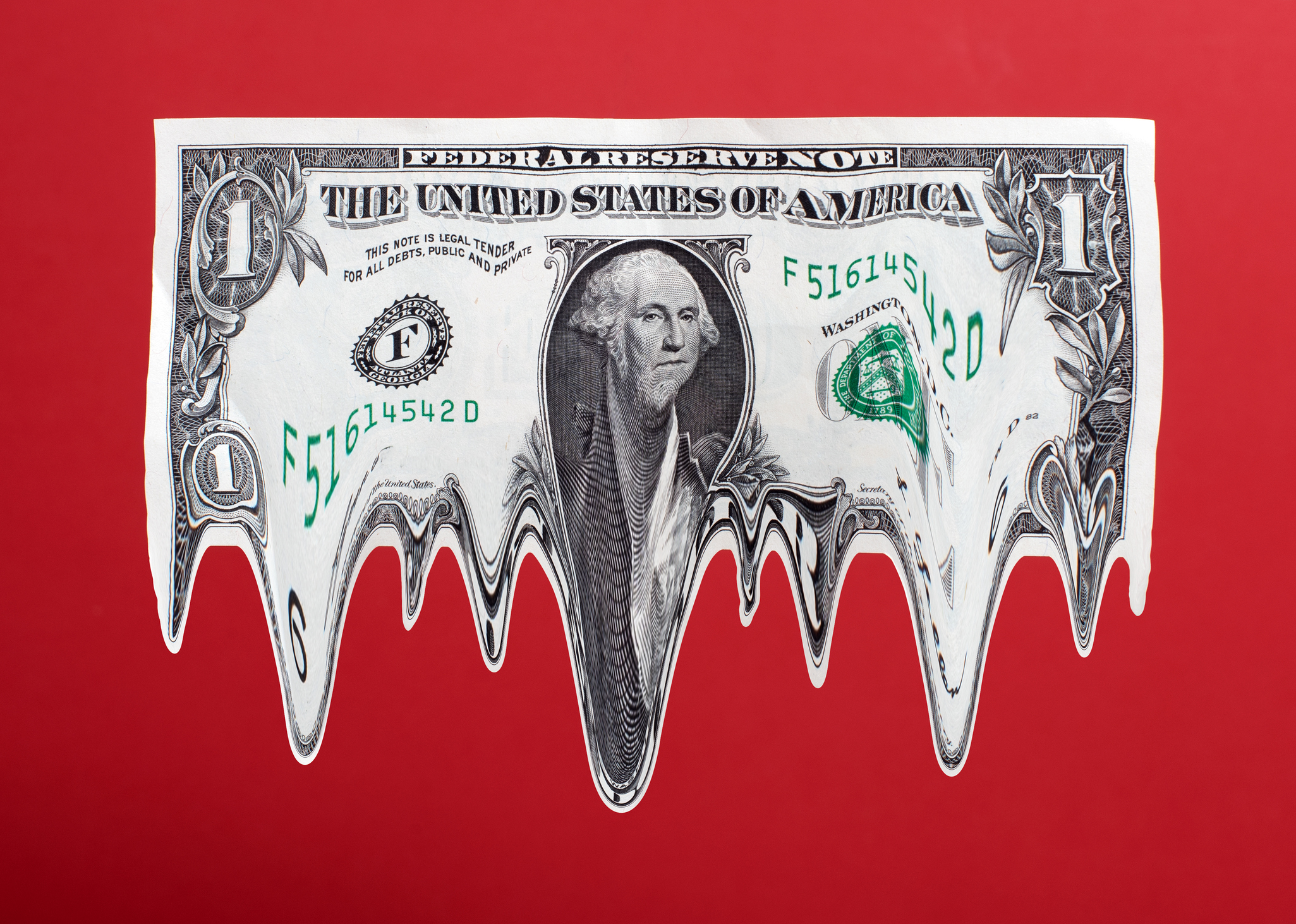Pricing Armageddon: what should investors do faced with nuclear war?
The war in Ukraine has left investment analysts pondering how to put a price on existential risks.


Get the latest financial news, insights and expert analysis from our award-winning MoneyWeek team, to help you understand what really matters when it comes to your finances.
You are now subscribed
Your newsletter sign-up was successful
Want to add more newsletters?

Twice daily
MoneyWeek
Get the latest financial news, insights and expert analysis from our award-winning MoneyWeek team, to help you understand what really matters when it comes to your finances.

Four times a week
Look After My Bills
Sign up to our free money-saving newsletter, filled with the latest news and expert advice to help you find the best tips and deals for managing your bills. Start saving today!
Russia’s invasion of Ukraine is having a far greater impact on markets than the average geopolitical incident from recent decades. There are good reasons for that.
Markets were already unsettled by the changing macroeconomic backdrop, while sanctions on this scale have never before been deployed against a major economy and huge commodity producer like Russia. But the most worrying factor is that Russia has nuclear weapons, which raises a risk that most of us haven’t seriously considered since the fall of the Berlin Wall.
In a report issued at the start of this month, analyst Peter Berezin at BCA Research estimated that there is “an uncomfortably high 10% chance of a civilisation-ending global nuclear war over the next 12 months”. The obvious question being: what does that mean for markets?
MoneyWeek
Subscribe to MoneyWeek today and get your first six magazine issues absolutely FREE

Sign up to Money Morning
Don't miss the latest investment and personal finances news, market analysis, plus money-saving tips with our free twice-daily newsletter
Don't miss the latest investment and personal finances news, market analysis, plus money-saving tips with our free twice-daily newsletter
Buy on a spike in fear
Berezin’s report has grabbed a few headlines along the lines of “nuclear war is bullish for shares”. Clearly, this isn’t his point. A story that US trader Art Cashin tells about the 1962 Cuban missile crisis is more illustrative. Cashin wanted to sell stocks, but his mentor, an experienced old hand, told him: “Look kid, if you hear the missiles are flying, you buy [stocks]. You don’t sell them... Cause if you’re wrong, the trade will never clear. We’ll all be dead.”
In other words, invest as if nuclear war won’t happen, because if it does, you won’t care about your portfolio. This makes sense. Even if you want to plan for the scenario of a devastating but survivable nuclear exchange (perhaps you have a holiday home in New Zealand), you’re still looking at a world where physical gold is about the only asset of potential use, and we’ve always suggested that MoneyWeek readers own a bit of that, so no change there.
So what’s the opportunity? Berezin argues that a spike in Google searches for “nuclear war” plus a run on potassium iodide (an anti-radiation treatment) implies that “a freak-out moment is coming, which will present a good buying opportunity for investors”. But it’s a bit more nuanced than “buy the dip”. What’s arguably more useful about Berezin’s report are his points on what a new cold war (which unlike nuclear war, seems inevitable) means for the economy.
Higher government spending on defence and alternative energy; a faster retreat from globalisation; and maybe even a tendency for households to save less, given “the ever-present danger of war”. All of these imply both higher inflation and higher interest rates. So if markets do “freak out”, be selective about the “bargains” you buy – because all of the factors that have been scaring markets for the past six months or so are only going to get worse.
Get the latest financial news, insights and expert analysis from our award-winning MoneyWeek team, to help you understand what really matters when it comes to your finances.

-
 Should you buy an active ETF?
Should you buy an active ETF?ETFs are often mischaracterised as passive products, but they can be a convenient way to add active management to your portfolio
-
 Power up your pension before 5 April – easy ways to save before the tax year end
Power up your pension before 5 April – easy ways to save before the tax year endWith the end of the tax year looming, pension savers currently have a window to review and maximise what’s going into their retirement funds – we look at how
-
 How a dovish Federal Reserve could affect you
How a dovish Federal Reserve could affect youTrump’s pick for the US Federal Reserve is not so much of a yes-man as his rival, but interest rates will still come down quickly, says Cris Sholto Heaton
-
 Why it might be time to switch your pension strategy
Why it might be time to switch your pension strategyYour pension strategy may need tweaking – with many pension experts now arguing that 75 should be the pivotal age in your retirement planning.
-
 Star fund managers – an investing style that’s out of fashion
Star fund managers – an investing style that’s out of fashionStar fund managers such as Terry Smith and Nick Train are at the mercy of wider market trends, says Cris Sholto Heaton
-
 How to add cryptocurrency to your portfolio
How to add cryptocurrency to your portfolioA new listing shows how bitcoin might add value to a portfolio if cryptocurrency keeps gaining acceptance, says Cris Sholto Heaton
-
 Investing in forestry: a tax-efficient way to grow your wealth
Investing in forestry: a tax-efficient way to grow your wealthRecord sums are pouring into forestry funds. It makes sense to join the rush, says David Prosser
-
 The MoneyWeek investment trust portfolio – early 2026 update
The MoneyWeek investment trust portfolio – early 2026 updateThe MoneyWeek investment trust portfolio had a solid year in 2025. Scottish Mortgage and Law Debenture were the star performers, with very different strategies
-
 Pundits had a bad 2025 – here's what it means for investors
Pundits had a bad 2025 – here's what it means for investorsThe pundits came in for many shocks in 2025, says Max King. Here is what they should learn from them
-
 New year, same market forecasts
New year, same market forecastsForecasts from banks and brokers are as bullish as ever this year, but there is less conviction about the US, says Cris Sholto Heaton